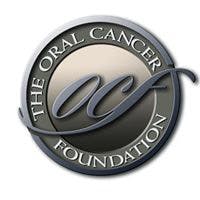New Recommendation Statement on Screening for Oral Cancer issued
Another new study paints a grim health picture for obese teens.(4) The authors say that physicians should inform families about short- and long-term consequences of obesity. Severely obese teens are at increased risk for a host of serious health problems as adults, including asthma, kidney disease and sleep disorders, according to the study.(4)
The researchers found that participants who were severely obese as teens had a greatly increased risk of serious health problems compared to those who were normal weight as teens. They were four times more likely to have swollen legs with skin ulcers; more than three times more likely to have severe walking limitations and abnormal kidney function; and much more likely to have asthma, diabetes, obstructive sleep apnea and polycystic ovary syndrome, a condition that can cause cysts on a woman's ovaries.(3)
For more information about the health consequences of obesity, visit the Weight-control Information Network website.(5)
And lastly, if you are an International Educator, please contact me by clicking on “Talk to the Editor”, and providing your name and email address!
Happy Holidays!
References
1. http://www.uspreventiveservicestaskforce.org/uspstf13/oralcan/oralcanfinalrec.htm.
2. http://oralcancerfoundation.org/.
3. Casimir GJ, Lefèvre N, Corazza F, and Duchateau J. Sex and inflammation in respiratory diseases: a clinical viewpoint. Biology of Sex Differences2013, 4:16. http://www.bsd-journal.com/content/4/1/16.
4. Inge TH, King WC, Jenkins TM, Courcoulas AP, Mitsnefes M, Flum DR, Wolfe BM, Pomp A, Dakin GF, Khandelwal S, Zeller MH, Horlick M, Pender JR, Chen J, and Daniels SR. The Effect of Obesity in Adolescence on Adult Health Status. Pediatrics 2013; 132:6 1098-1104; published ahead of print November 18, 2013, doi:10.1542/peds.2013-2185.
5. http://win.niddk.nih.gov/publications/health_risks.htm.
** This statement is that of the U.S. Preventive Services Task Force, and not necessarily that of the author or PennWell® Corporation.
Sincerely,





